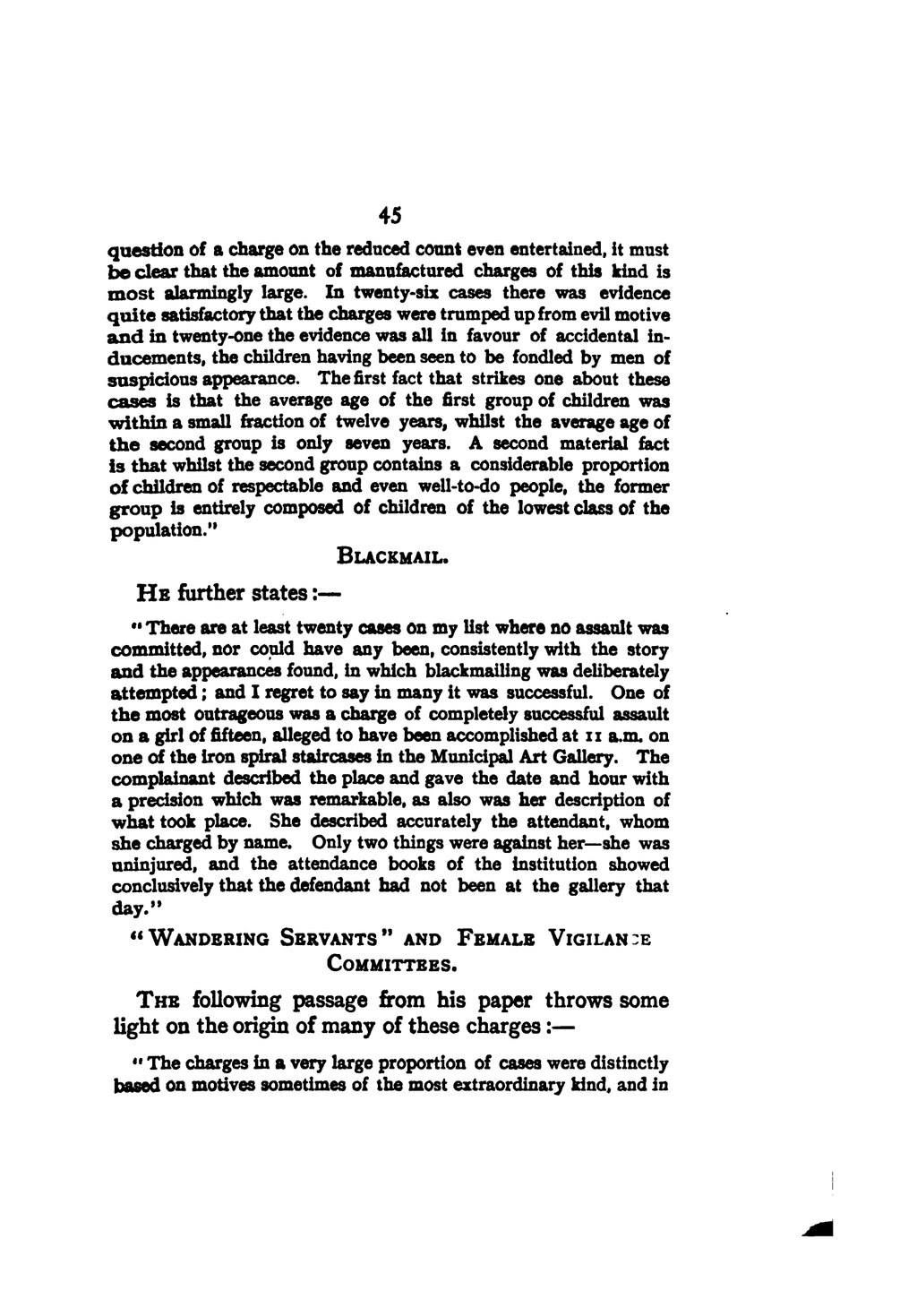45
question of a charge on the reduced count even entertained, it must be clear that the amount of manufactured charges of this kind is most alarmingly large. In twenty-six cases there was evidence quite satisfactory that the charges were trumped up from evil motive and in twenty-one the evidence was all in favour of accidental inducements, the children having been seen to be fondled by men of suspicious appearance. The first fact that strikes one about these cases is that the average age of the first group of children was within a small fraction of twelve years, whilst the average age of the second group is only seven years. A second material fact is that whilst the second group contains a considerable proportion of children of respectable and even well-to-do people, the former group is entirely composed of children of the lowest class of the population."
Blackmail.
He further states:—
"There are at least twenty cases on my list where no assault was committed, nor could have any been, consistently with the story and the appearances found, in which blackmailing was deliberately attempted; and I regret to say in many it was successful. One of the most outrageous was a charge of completely successful assault on a girl of fifteen, alleged to have been accomplished at 11 a.m. on one of the iron spiral staircases in the Municipal Art Gallery. The complainant described the place and gave the date and hour with a precision which was remarkable, as also was her description of what took place. She described accurately the attendant, whom she charged by name. Only two things were against her—she was uninjured, and the attendance books of the institution showed conclusively that the defendant had not been at the gallery that day."
"Wandering Servants" and Female Vigilance Committees.
The following passage from his paper throws some light on the origin of many of these charges:—
"The charges in a very large proportion of cases were distinctly based on motives sometimes of the most extraordinary kind, and in

